Outlook The
SEPT/OCT
VOLUME 73
ISSUE 5
72 YEARS: 1951 – 2023 reformedfellowship.net
2023 DEDICATED TO THE EXPOSITION AND DEFENSE OF THE REFORMED FAITH
The Judgment of Our Nation Is Imminent
“Abba, I’m Hurting”
1527: The Ten-Year Anniversary of the Reformation
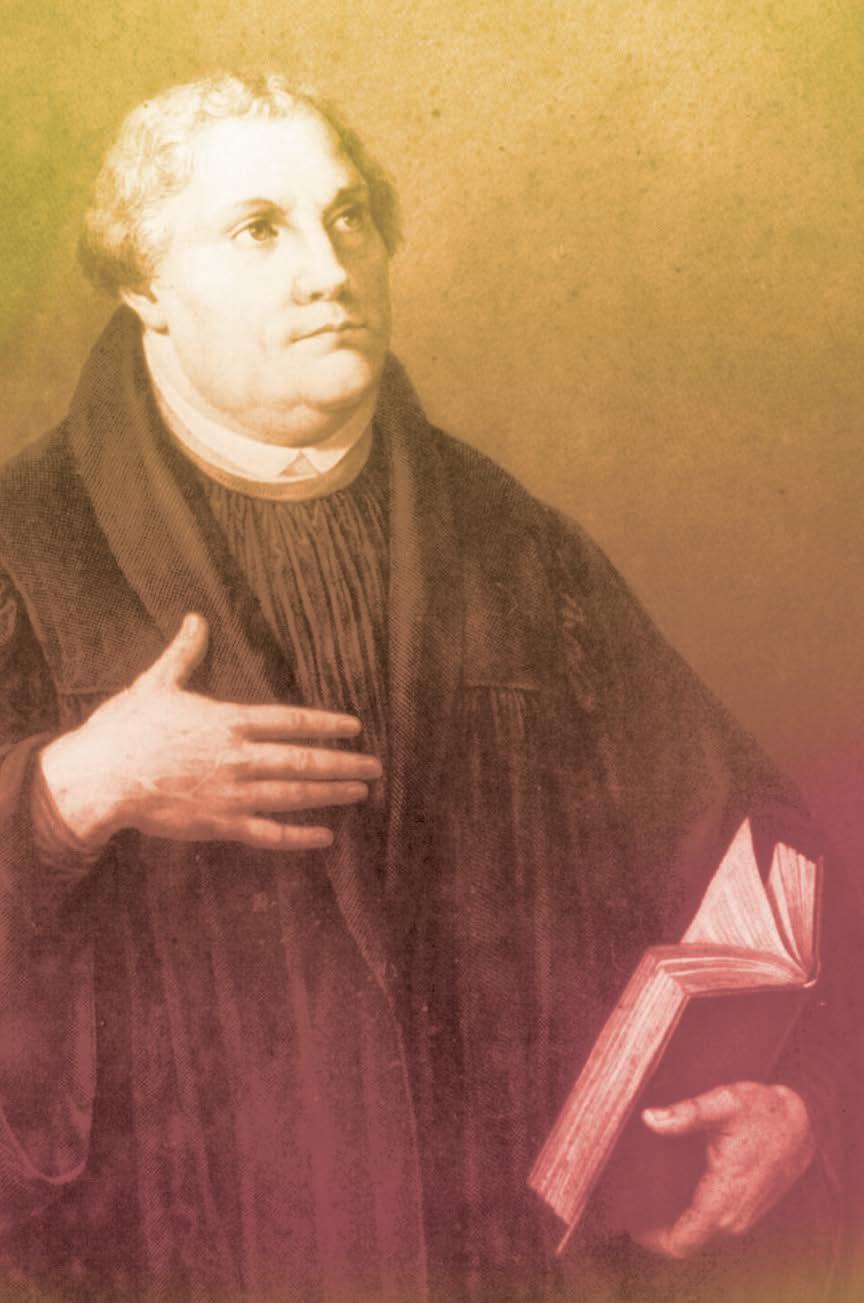

A Reformed Response to Crisis: Perspectives on the Synod of Dort Outlook Forum
Are You Not Ashamed of the Gospel?
Church Order Articles 11 and 12
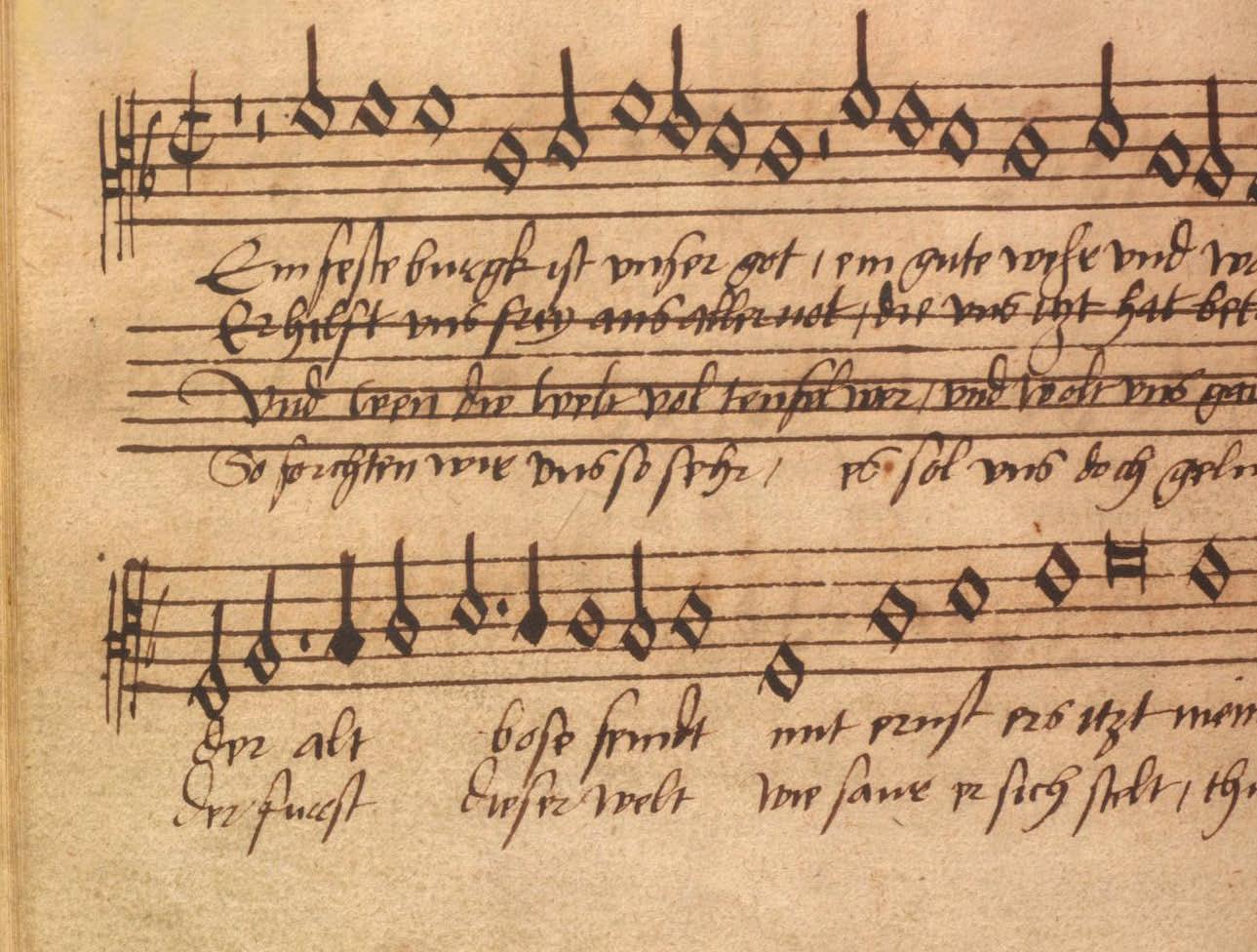
Abraham Lincoln on the Mystery of Divine Providence Reflections on the Ten Commandments
How Do We Know Jesus
Is Our Mediator?

What Is True Faith?
Heaven
Good Question
Preparing Your Family to Receive the Preached Word Book Reviews
–Martin Luther
3 | The Judgment of Our Nation Is Imminent
Mr. Cornelius Van Kempen
Meditating on how where we have brought ourselves as a nation may be used by the Lord to bring us, his church, to our knees in prayer and repentance.
4 |
“Abba, I’m
Hurting”
Rev. Derrick J. Vander Meulen
Why I didn’t lead my dad’s funeral.
6
|
1527: The Ten-Year Anniversary of the Reformation
Mr. James Swan
A look at the life of Martin Luther and the effect the Reformation had on his life ten years after it took place.
8 | A Reformed Response to Crisis: Perspectives on the Synod of Dort Outlook
Forum
Mr. Michael R. Kearney
Introduction, and Reformation in the Background.
Dr. R. Andrew Compton
The Synod of Dort, Bible Translation, and Biblical Scholarship.

Rev. Zachary Wyse
Encouragement for Gospel Labor.
Dr. Daniel Ragusa
The Significance of Dort Today Revisited.
15
|
Are You Not Ashamed of the Gospel?
Mrs. Annemarieke Ryskamp
Jesus wants us to never be ashamed of Him (Matthew 10:32-33).
17 |
Church Order Articles

11 and 12
Rev. Greg Lubbers
Article 11: Exceptional Release of a Minister. Article 12: The Nomination of Elders and Deacons.
20 | Abraham Lincoln on the Mystery of Divine Providence

Dr. Mark J. Larson
It is a remarkable thing that we along with previous generations are able to find comfort in the teaching of an American president on the biblical doctrine of the providence of God.
23
|
Reflections on the Ten Commandments (3)

Mr. Gaylord Haan
In our final article, we consider the last three of these familiar words: You shall not... steal, bear false witness, or covet. They speak to how we live, and the tenth also speaks to our innermost being. They too must be followed faithfully.
Cover layout/design concept/ composition by Jeff Steenholdt. Ein feste Burg ist unser Gott, Hymn by Martin Luther, Written: c. 1527–1529
27
|
How Do We Know Jesus Is Our Mediator? (6)
Rev. William Boekestein
Heidelberg Catechism, Lord’s Day 6, Q&A 16, 17, 18, and 19.
29
|
What Is True Faith? (7)

Rev. William Boekestein
Heidelberg Catechism, Lord’s Day 7, Q&A 20, 21, 22, and 23.
31
|
Heaven
Rev. Peter H. Holtvlüwer
Many people long for heaven, but what is it? When did it come about? What will happen to heaven at the return of Christ?
33
|
Good Question
Rev. William Boekestein
How can I enjoy intimacy with Jesus?

34
|
Preparing Your Family to Receive the Preached Word (2)
Dr. Joel R. Beeke
Having seen last month how to prepare your family for the preached Word, let us focus now on how to teach your children to receive sermons properly. Here are some guidelines for you to teach your family about listening rightly to God’s Word.
37
|
Book Reviews
Rev. Jerome M. Julien
Drawing Near to the Heart of God: A Year of Devotions from a Rich Tradition and The Dort Study Bible (vols. 6, 7).
Contents | September/October | Volume 73 | Issue 5
The Outlook | 2
IS IMMINENT THE JUDGMENT OF OUR NATION
As our nation begins to get involved in another election cycle, we hear much about what those running for office can do for the country, and this is needed for us to make a choice, but God is not in the thoughts of those running for office.
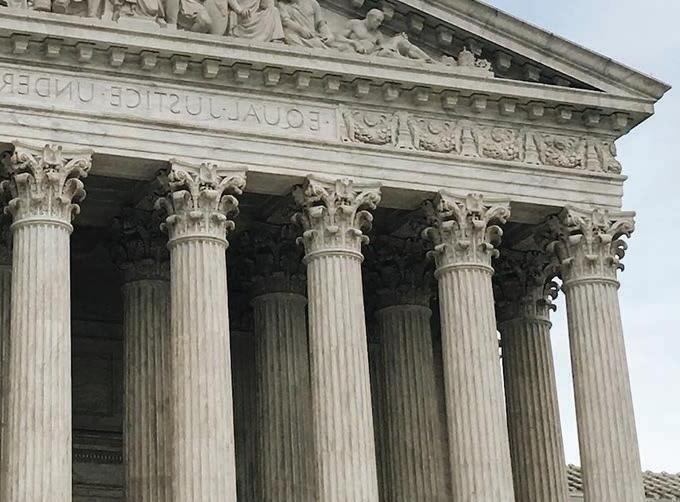

“For that they hated knowledge, and did not choose the fear of the Lord: They would none of my counsel: they despised all my reproof. Therefore shall they eat of the fruit of their own way, and be filled with their own devices. For the turning away of the simple shall slay them, and the prosperity of fools shall destroy them” (Prov. 1:29–32). We, as a nation, have turned our backs on God our creator and sustainer. We forget he’s in control even when things seem to be out of control. Jesus Christ is on the throne and does rule, and we all shall have to give an account of our actions. Psalm 2 gives us a word picture of this. Psalter 3 is a versified reflection titled “The Kingship of Jesus Christ.”
Thou art become guilty in thy blood that thou hast shed; and hast defiled thyself in thine idols which thou hast made, and thou hast caused thy days to draw near, and art come even unto thy years.
Wherefore do the nations rage and the people vainly dream that in triumph they can wage war against the King supreme? Christ His Son a scoff they make, and the rulers plotting say: Their dominion let us break, let us cast their yoke away.
But the Lord will scorn them all, calm He sits enthroned on high; soon His wrath will on them fall, sore displeased He will reply: Yet according to My will I have set My King to reign, and on Zion’s holy hill my anointed I maintain.
This His word shall be made known, this Jehovah’s; firm decree: Thou art My beloved Son, Yea, I have begotten Thee. All the earth at Thy request I will give Thee for Thy own; then Thy might shall be made known; Then Thy foes be overthrown. Therefore, kings, be wise, give ear; hearken, judges of the earth; learn to serve the Lord with fear, mingle trembling with your mirth. Kiss the Son, lest o’er your way His consuming wrath should break; but supremely blest are they who in Christ their refuge take.
May God’s true people arise from their sleep and turn to him who saved them, begging him to turn the hearts of our leaders to return to his law and testimonies. But above all we pray that God will make us willing to bow under his will even if this is contrary to what we want, and suffer persecution for following him.
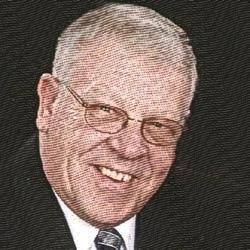
“Now we beseech you, brethren, by the coming of our Lord Jesus Christ, and by our gathering together unto him, that ye be not soon shaken in mind, or be troubled, neither by spirit, nor by word, nor by letter as from us, as that the day of Christ is at hand”
–2 Thess. 2:1–2
There is hope, but not in ourselves.
“Therefore, my beloved brethren, be ye stedfast, unmoveable, always abounding in the work of the Lord, forasmuch as ye know that your labour is not in vain in the Lord”
–1 Cor. 15:58
–Ezekiel 22:4a, KJV
Mr. Cornelius Van Kempen
known as Case, has been married to Susan for fifty-seven blessed years. They attend and are members of Heritage Reformed Congregation in Grand Rapids, MI.
Sept/Oct 2023 | 3
“Abba, I’m Hurting”
Why I Didn’t Lead My Dad’s Funeral
The apostle John tells us that when the new heavens and new earth arrive, we will hear a voice from the throne saying, “Behold, the dwelling place of God is with man. He will dwell with them, and they will be his people, and God himself will be with them as their God. He will wipe away every tear from their eyes, and death shall be no more, neither shall there be mourning, nor crying, nor pain anymore, for the former things have passed away”
(Rev. 21:3–4, ESV).
Some things that we experience today, in this world, will be no more: tears, crying, mourning, pain, and death. Someday, praise the Lord, these will be former things. This is why when I lead a funeral service I will, at some point, either read or mention this passage. It is of immeasurable comfort to Christians who mourn that we will someday enjoy an existence without death, crying, or mourning.
But that someday is not yet. It is our certain future when our blessed Savior returns in glory and in power, but it is not now.
My dad died recently. Or, to put it more gently, he passed away, went to glory, is no longer with us, and has gone home. It’s amazing how many euphemisms there are for death when you think about it. But I prefer to say that he died because that’s how the Bible describes it.
I love my dad. He was a loving father
and husband, a sincere churchman, a successful businessman, and had a great sense of humor. Sometimes he was just goofy and silly, always with the intent to make his family laugh. I have so many great memories of him and am thankful to the Lord for his life, and his vital part in my life.
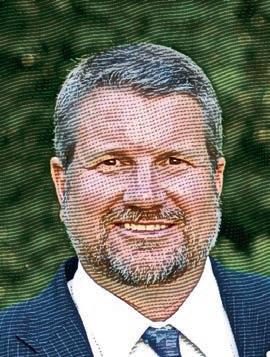
Toward the end of his life, he suffered from Parkinson’s disease and dementia. It was very difficult for my family and me to watch the decline. We were watching death at work, in slow motion. Finally, at eighty-eight years old, he died.
In the United Reformed churches, the federation in which I serve as a minister of the Word, we recognize that funerals are not ecclesiastical but are family affairs. And as a pastor of more than thirty years I’ve been asked by many families to officiate a loved one’s funeral. Doing so, I’ve always sought to accomplish two things: to bring biblical words of comfort to the family and friends, and to proclaim the gospel to all who are present.
So, I was not surprised when my dear mom asked me if I would be willing to lead my father’s funeral service. After considering that request and praying about it and knowing my own grief, I respectfully declined. I know several colleagues in ministry who have led their parent’s funeral, and I’m sure they had good reasons to do so. But I determined that for me, in this situation, I would rather not officiate.
One practical reason is that my dad’s pastor had visited him faithfully, and he was able and willing to lead the funeral service. But, in all honesty, that was not the primary reason. The truth is that I wanted to enter the house of mourning and be comforted.
Ecclesiastes 3 is a well-known and beloved wisdom passage: “For everything there is a season, and a time for every matter under heaven . . . A time to weep, and a time to laugh; a time to mourn, and a time to dance” (vv. 1, 4). Funerals, it seems to me, are appropriate times to weep, to mourn. And that’s okay. In fact, that’s good. Ecclesiastes 7:1–4 is sadly less known though equally wise: “A good name is better than precious ointment, and the day of death than the day of birth. It is better to go to the house of mourning than to go to the house of feasting, for this is the end of all mankind, and the living will lay it to heart. Sorrow is better than laughter, for by sadness of face the heart is made glad. The heart of the wise is in the house of mourning, but the heart of fools is in the house of mirth.”
Throughout our lives we have many “celebrations of life”: birthdays, holidays, graduations, weddings, anniversaries, reunions, retirement parties, and the list goes on. These are happy times in which we rightly celebrate and rejoice. But shouldn’t we also have a time and place to mourn? Can’t a funeral be a funeral? I’m not in favor of calling it a “celebration of life.” Solomon is telling us that it’s at funerals that we humans are confronted with our mortality. It’s at funerals
Rev. Derrick J.
The Outlook | 4
that we learn to number our days so that we may get a heart of wisdom (Ps. 90:12). God’s Word is teaching us that, in some way, mourning at a funeral opens our hearts and minds to wisdom. The wisdom to fear the Lord. The wisdom to know that our time in this world is fleeting. The wisdom to cling to Jesus who alone is the way, the truth, and the life. My dad had just died, and I wanted to mourn. I needed to feel afresh my own revulsion of death. It isn’t right. It isn’t natural. It’s a terrible intrusion. It’s awful! I wanted to weep over it. I wanted the truth—that “the wages of sin is death”—to sink in deeply and to weep over my own sin, my dad’s sin, Adam’s sin. I didn’t want to anesthetize the pain I was feeling, or ignore it, or suppress it, which I would have had to do if I were leading the service up front. I didn’t want to put on a stiff upper lip. No, I wanted to mourn. I needed to go to my heavenly Father and say, “Abba, I’m hurting.” I needed to hear from the God of all comfort who comforts us in all our affliction (2 Cor. 1:3–4). This time, I would rather not be the mouthpiece who speaks, but the listener who hears and receives.

This does not mean I want to wallow in grief. I know the end of the story, and every Sunday when I join with God’s people in worship, I am rejoicing that this life in this world is not the end. I’m joining with other believers to worship our Savior who died and rose again. First Thessalonians 4:13–14 says, “But we do not want you to be uninformed, brothers, about those who are asleep, that you may not grieve as others do who have no hope. For since we believe that Jesus died and rose again, even so, through Jesus, God will bring with him those who have fallen asleep.”
I rejoice that my dad’s soul and all souls who die in the Lord are
with Jesus in paradise (Luke 23:43). This is why our heavenly Father gave his only begotten Son. In Christ, those who die in the Lord will not perish everlastingly but will have everlasting life. And I long for the day when Christ returns in triumph and the dead bodies will be raised, reunited with the souls, and enjoy that everlasting life in the new heavens and the new earth.
This is my hope, and the hope of every Christian. That means when we grieve at a funeral, it’s different than the grief of an unbeliever. Ours is the grief of separation from a loved one that understands the separation is temporary. It understands that death is a defeated enemy. Christ has triumphed and is now preparing a place for us.
But that does not mean death doesn’t exist and isn’t real. We haven’t yet entered that blessed final state of our existence in the new heavens and the new earth. Now, today, on this old earth, those “former things” are present things. Death is a reality that really hurts. Here we still have pain and shed tears and mourn.
Death came near to me recently, and I’m thankful that I could mourn. And with those tears I’m crying out with even greater intensity, “Come, Lord Jesus! Come quickly!”
So teach us to number our days that we may get a heart of wisdom.
–Psalm 90:12
Sept/Oct 2023 | 5
Rev. Derrick J. Vander Meulen is pastor at Coram Deo Reformation Church (URC) in Littleton, CO.
A Reformed Response to Crisis: Perspectives on the Synod of Dort | Outlook Forum
Introduction

Fifty-five years ago, Reformed Fellowship published an edited book commemorating the Synod of Dort of 1618–19. This synod was an international gathering of theologians, ministers, and elders to deal with a number of pressing issues in the Reformed church, including translating the Bible, organizing and governing the Reformed churches in the
Netherlands, and—its most famous accomplishment—responding to Arminianism with a document known today as the Canons of Dort. Reformed Fellowship’s commemorative volume, Crisis in the Reformed Churches, was edited by Peter Y. De Jong, minister and professor in the Christian Reformed Church and one of the founders of Mid-America Reformed
Seminary. Crisis in the Reformed Churches contains chapters by a variety of significant American and Dutch theologians of the twentieth century, including Simon Kistemaker, John Murray, Klaas Runia, and Cornelius Van Til. It is perhaps the most significant theological work that Reformed Fellowship has published in its seventy-plus-year history, earning a place on seminary bookshelves and in ministerial studies. A second edition appeared in 2008. For this Reformation-themed forum, we invited a few contributors to review particular chapters from Crisis in the Reformed Churches, connecting these chapters to more recent scholarship on the Synod of Dort and contemporary pastoral issues. Page numbers in parentheses refer to the second edition of this book, available for purchase from Reformed Fellowship. We hope this sampling of Crisis in the Reformed Churches will inspire Outlook readers to pick up a copy of this important and accessible volume of Reformation history.
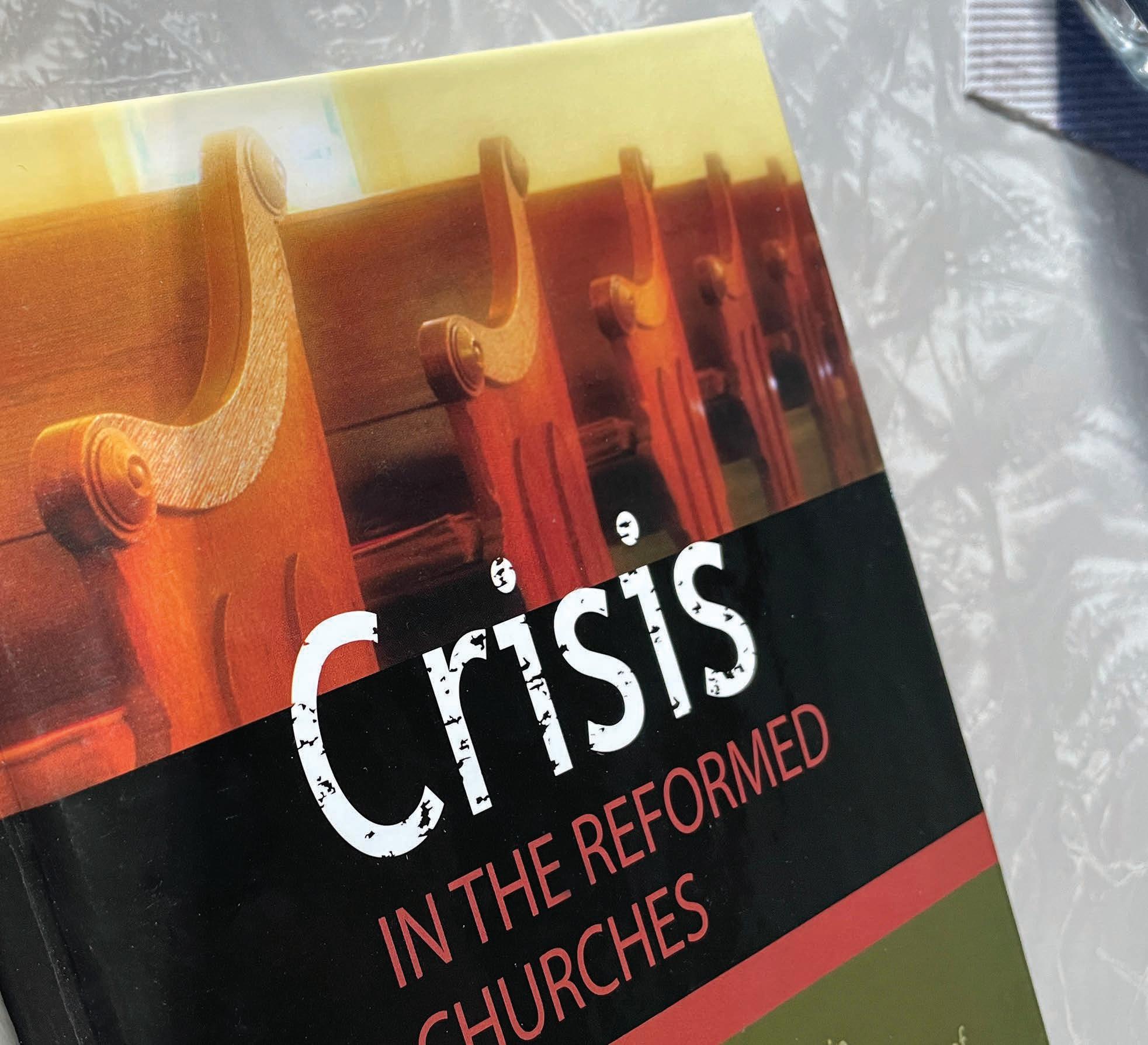
The Outlook | 6
Reformation in the Background
Mr. Michael R. Kearney

Chapter 1, “The Rise of the Reformed Churches in the Netherlands,” by Peter Y. De Jong, and Chapter 2, “The Background of the Arminian Controversy (1586–1618),”
Studying the secular and religious history leading up to the convening of the Synod of Dort is complicated but rewarding. These chapters exposed a big gap in my understanding of reformation in sixteenth- and seventeenth-century Europe: how did the ideas of Luther and Calvin take root specifically in the Netherlands, and why (besides giving us one of the Three Forms of Unity) was the Synod of Dort so historically unique and important?
I supplemented my study of De Jong’s and Praamsma’s chapters by reading Christine Kooi’s 2022 book Reformation in the Low Countries, 1500–1650, published by Cambridge University Press. Here, I’ll mention just a few interesting points that I hope will help benefit others’ historical awareness of Dort as they have my own.
First, church reform looked different in the Low Countries (modernday Belgium, Luxembourg, and the Netherlands) than it did in other parts of Europe. Interestingly, De Jong and
by Louis Praamsma
Kooi state that pre-Reformation rates of literacy and biblical knowledge in the Low Countries were quite high, the Bible was already available in the vernacular, and movements like the Brethren of the Common Life promoted personal spirituality and criticized the abuses of the fourteenth-century Roman Catholic Church. It is perhaps most accurate to describe reformation in the Low Countries as a gradual, grassroots process accompanied by periods of intense persecution and characterized by multiple stages of theological influence.
Lutheran ideas reached the Netherlands as early as the 1520s, followed by Sacramentarian1 and Anabaptist movements. The ideas of Calvin took root later, thanks to a combination of his writings, the exile of many Dutch Protestants into regions of Europe where Calvinism was already influential, and the establishment of the first Reformed congregations in the southern part of the Low Countries (modern-day

Belgium). Kooi notes that the founding of the Dutch Republic or United Provinces in 1579 was historically unique: nowhere else in Europe did the arrival of Calvinism lead to an entirely new country built on explicitly Reformed principles.2
However, the turbulent political scene of sixteenth-century Europe compromised the integrity of those principles in practice, leading to a second observation: these histories make it impossible to present a morally or theologically “pure” account of the Synod of Dort. The calling of the synod involved some amount of subterfuge and power struggles between the ecclesiastical and civil authorities, which may be difficult to wrap our minds around in a country that enshrines separation of church and state. De Jong laments that joining the Reformed church in the early Dutch Republic was often a matter of political expediency, which “weakened the church from within” (33). The specific battle between the Remonstrants (members of the Reformed churches in the Netherlands who gathered around the doubts of Jacobus Arminius toward Calvinistic teachings about predestination and salvation) and the so-called Counter-Remonstrants illuminated longer and deeper struggles. The synod was certainly necessary, but its origins, as well as some of the actions taken during its deliberations, remain open to critique.
Third, these chapters emphasize that the Synod of Dort had practical as well as theological relevance. If the synod’s central theological question was “How should ministers articulate biblical teachings about salvation?” its central practical question was “How much freedom should ministers have in their teaching?” Praamsma points out that the Remonstrants tended to object to the idea of subscription to the creeds and confessions, whereas the Counter-Remonstrants (Calvinists) held “that anyone, convinced that something in these

Sept/Oct 2023 | 7
standards was contrary to the Word of God, should reveal such convictions so that both the official doctrine of the church and the objections to it could be tested in the light of Scripture” (47). The victory of the CounterRemonstrants did not eliminate the possibility of questioning or even revising the Reformed confessions,3 but it did stress that any questioning of the churches’ common statement of faith must be made public and brought before a larger assembly that could reflect and respond.
That observation, in turn, reveals a presupposition we should not take for granted. The calling of the Synod of Dort reflected the belief that a group of ordinary people appointed as local leaders of Christ’s churches could assemble peacefully for purposes of discussion and decision making, placing greater confidence in collective wisdom than in individual insight. That commitment to public, democratic deliberation among office bearers was a watershed moment, recovering a principle that had been lost since the early church councils and the days of the apostles. A peculiar mixture of humility and confidence was on display at Dort— humility at the realization of flawed human leaders struggling with a tough political climate and wrestling through hard theological questions, but confidence that the Holy Spirit, even in an imperfect assembly of impure origins, would continue to do his work and bless his church. The call for reform and renewal has not ceased, even in the twenty-first century, and Jesus still walks among the lampstands (Rev. 2:1).
1 De Jong describes the Sacramentarians as an evangelical movement among the educated in the Netherlands, who “met in conventicles to read and interpret the Scriptures and engage in preaching” (25).
2 Christine Kooi, Reformation in the Low Countries, 1500–1620 (Oxford, UK: Oxford University Press, 2022), 3–5.
3 As just one example of this, see the footnote regarding Article 36 in the URCNA translation of the Belgic Confession.
The Synod of Dort, Bible Translation, and Biblical Scholarship
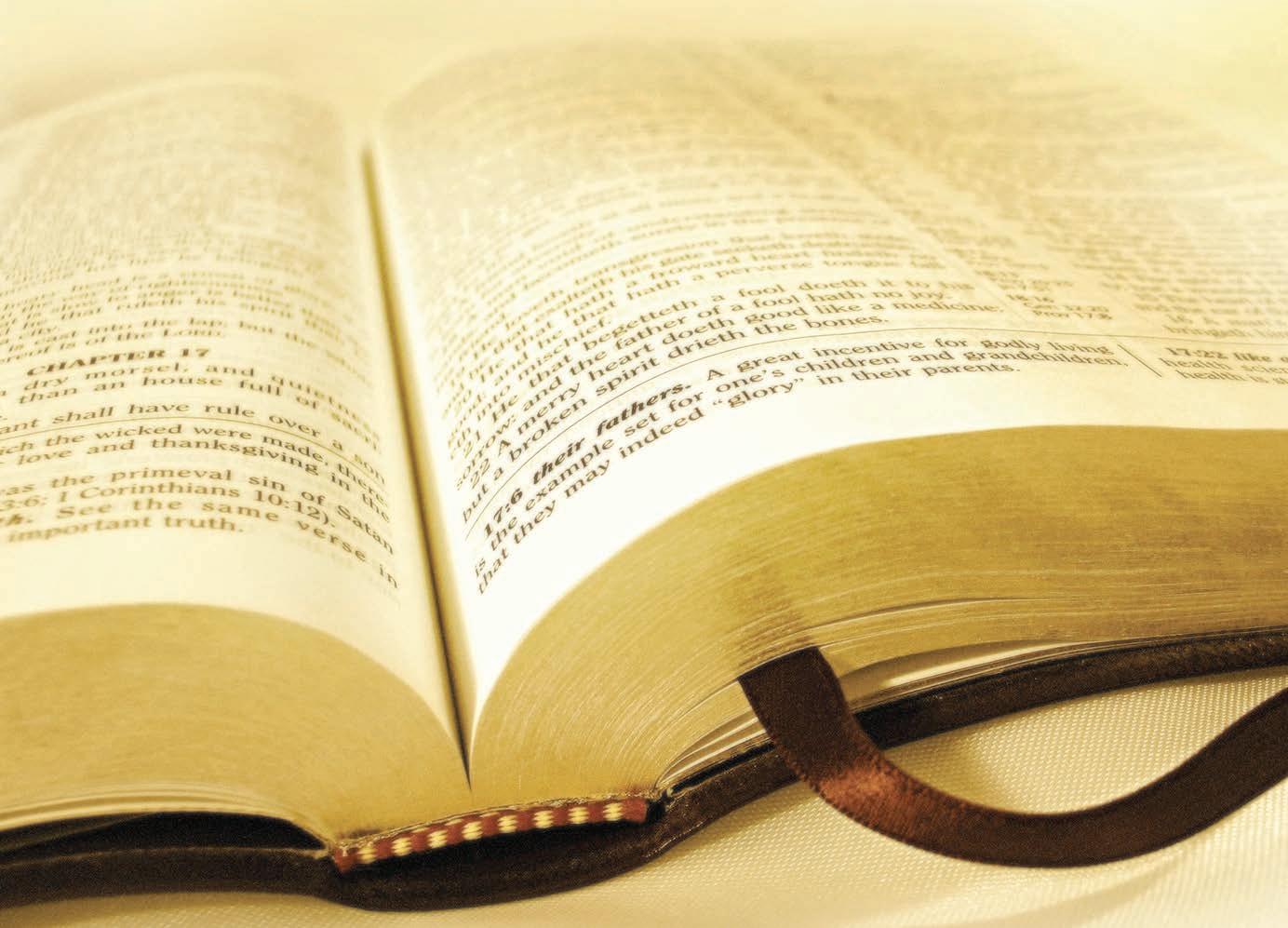 Dr. R. Andrew Compton
Dr. R. Andrew Compton

Chapter 5, “The Synod and Bible Translation,” by
Marten H. Woudstra
“Literal equivalence is best.” “Formal equivalence is best.” “No, dynamic equivalence is best.” “The Message is a waste of time.” “Everyone should own the New Living Translation.” “The Majority Text is most accurate.” “The Textus Receptus is most accurate.”
“The eclectic text is most accurate.”
So many Bible translations. So many opinions about translations and translation philosophies. To improvise a bit on a line by the Preacher, Qohelet: “Of making many Bible translations there is no end.” (See Ecclesiastes 12:12, which speaks of making “scrolls” or “writings.”)
NASB, KJV, and, much to my friend’s chagrin, several NIVs! I had just entered a new world. I saved up my money and bought an NASB. (To be more accurate, it was an NASB 1995, which had replaced the Lockman Foundation’s 1971 edition.)
Reformation in the Background
I will never forget walking into Bible study at Calvary Chapel Seal Beach as a junior in high school and being told by another kid, “You have an NIV? You should really get a NKJV. It’s way more accurate.” I was completely bowled over. Really? One translation might be better than another? I thought everyone used the NIV. Wasn’t it the main translation?
But as I looked around, I saw a whole host of new abbreviations: NKJV,
After college, I bought my first NKJV. Both Bibles I wore out. In seminary, I broke the binding of my ESV, a 2001 edition which Crossway replaced for free. But I discovered in 2014, when I purchased a wide-margin ESV, that the ESV itself had changed—at least in a few places, one of which was 2 Peter 2:19, a passage on which I was preaching where I preferred the translation of the 2001 edition. The 2011 edition contained some updates, and while these were mostly minor and easily reconcilable with the earlier edition, they still meant that things were not as simple as I would have liked.
In a world of ever shifting ideological sands, Christians (rightly) long for something firm and fixed. And when
The Outlook | 8
even Bible translations get promoted by cults (e.g., the New World Translation of the Jehovah’s Witnesses or the Passion Translation of the socalled New-Apostolic Reformation), Christians begin to worry: “What should I trust? What must I reject?”
There are merits to the ESV. Leland Ryken, Kevin DeYoung, Vern Poythress, and Wayne Grudem have made able cases for this translation.1 I most often preach from it even though it has some weaknesses. But there are also merits to the NIV, even to the 2012 updated edition which also has some liabilities.2 And the KJV and NKJV have a beauty, longevity, and restraint that is hard to deny once one has spent sufficient time reading and studying them.3
In all of this, notice that I have focused exclusively on English translations of the Bible. But did you know that our Dutch Reformed fathers in the faith wrestled with many of these same questions in the sixteenth and seventeenth centuries? When the Synod of Dort was responding to Arminian revisions of predestination, did you know it was also responding to Arminian Bible translation philosophies?
In chapter 5 of Crisis in the Reformed Churches, the late Marten H. Woudstra provides a stimulating history entitled “The Synod and Bible Translation.” He begins with a history of Bible translations used in the Netherlands after the Reformation from the Liesveldt Bible (1526), to Jan Utenhove’s utopian translation (1556, New Testament only), to a modified and restrained use of Utenhove’s linguistic ideas which produced the Deux Aes Bible (1562). Between 1562 and the start of the Synod of Dort, a number of regional synods spoke to the need of an accurate and readable Dutch-language Bible, and several individuals worked on translations or annotations. Woudstra’s description of this history is fascinating.
When the Synod of Dort began in 1618, the president, Johannes Bogerman, urged the delegates to support the work of a new Bible. The discussion, begun in the sixth session of the synod, was decided by unanimous vote in the eighth session: a new translation would be produced. In subsequent sessions, other details were discussed: whether to make a new translation or merely revise an older translation (a new translation was decided); whether to include the apocrypha (they voted to include it, though agreed to not expend the same amount of time on these books since they were noncanonical); and how the work of producing a translation was to be organized.
A six-person translation team was appointed; three would translate the Old Testament, three the New Testament. They would live and work in Leiden due to its prestige and university resources. From there, the team would send their work to revisors. Two revisors were to be appointed for each provincial synod. Though the translators hoped to begin immediately, governmental delays meant that the team was finally able to meet and begin work in earnest in 1626. In 1634, the Bible was completed, and it took until June 1637 for the revisers to finish their work. On July 29, 1637, the state approved the translation, giving it the name the Staten Bijbel
Were Woudstra merely concerned with the fascinating timeline of Dutch Bible translations, this chapter would already be a success. But Woudstra devotes another eleven pages to exegetical and hermeneutical issues at play in the conflict with the Arminians. This writer was amazed to see significant overlap between the Arminian Bible scholars of the early seventeenth century and evangelical scholars today who have become critical of confessional and revelatory approaches to Scripture, instead
devoting themselves increasingly to what has been called an “evangelical appropriation of critical scholarship.”4 Peter Enns, Kenton Sparks, John Goldingay, and John Walton, to name only a few, have sought some kind of middle ground between a purportedly naïve form of believing scholarship and an unbelieving form of highercritical scholarship.
Yet Woudstra’s chapter shows that the supposedly “naïve” work of such early believing translators as those of the Staten Bijbel was highly sophisticated and nuanced—and it rejected the Arminian scholarship of the day for being insufficiently rigorous and consistent in its beliefs about the nature of Scripture as God’s Word. These final eleven pages are an especially valuable resource for 2023, where evangelical adoption of higher-critical conclusions is only increasing.
I close this short essay with one final note. Whereas Bible translations in our day are especially market driven, it is important to see that the Synod of Dort saw Bible translation as a churchly activity. Notice that even the ESV is sold by Crossway in ever increasing formats with boutique study-note themes and designs and accompanying devotional and Bible study resources. This is not to suggest that Crossway is doing something inappropriate, but simply to alert us to the fact that there are factors at play in marketing and publishing a translation like the ESV that are not necessarily connected to ecclesiastical order and church confessions and theological distinctions. While it may be impossible to repeat the feat of the Staten Bijbel today in North America where Reformed churches lack the homogeneity and intimacy of the churches of a substantially smaller nation (the Netherlands) in the seventeenth century, it is a good reminder that churches should indeed be interested in Bible translation.
Sept/Oct 2023 | 9
1 Wayne Grudem et al., Translating Truth: The Case for Essentially Literal Bible Translation (Wheaton, IL: Crossway, 2005); Vern S. Poythress and Wayne A. Grudem, The TNIV and the Gender-Neutral Bible Controversy (Nashville: Broadman & Holman, 2005); Kevin DeYoung, Why Our Church Switched to the ESV (Wheaton, IL: Crossway, 2011).
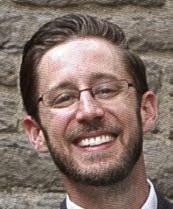
2 Kenneth L. Barker, ed., The NIV: The Making of a Contemporary Translation (Grand Rapids: Zondervan, 1986); Gordon D. Fee and Mark. L. Strauss, How to Choose a Translation for All Its Worth: A Guide to Understanding and Using Bible
Translations (Grand Rapids: Zondervan, 2007); Douglas J. Moo, We Still Don’t Get It: Evangelicals and Bible Translation Fifty Years after James Barr (Grand Rapids: Zondervan, 2014).
3 Leland Ryken, The Legacy of the King James Bible: Celebrating 400 Years of the Most Influential English Translation (Wheaton, IL: Crossway, 2011).
4 Taken from the hermeneutically problematic book by Kenton L. Sparks, God’s Word in Human Words: An Evangelical Appropriation of Critical Biblical Scholarship (Grand Rapids: Baker Academic, 2008).
Encouragement for Gospel Labor
Chapter 7, “The Significance of the Canons for Pastoral Work,”
by Edwin H. Palmer
It is common for pastors and elders in the broader Reformed world to laud the Heidelberg Catechism for its pastoral shape and tone. It is the catechism of comfort, after all. Those who are well-versed in the Three Forms of Unity will recognize that the Belgic Confession is also very warm and shares the Heidelberg’s goal of comforting the Christian. But how many pastors, even within the Dutch Reformed tradition, view the Canons of Dort in this same light? It is affirmed for its Augustinian orthodoxy and ability to address theological questions with precision, but it is rarely consulted or appropriated when pastoral issues surface in the life of a church. Dr.
Edwin H. Palmer’s contribution to Crisis in the Reformed Churches, “The Significance of the Canons for Pastoral Work,” argues that “not only should the minister teach all the doctrines in the Bible—including the teachings of Dort—but also he should understand how profitable they are in his pastoral work” (171).
Dr. Palmer may not have the name recognition of other contributors to Crisis in the Reformed Churches, but he was well placed to author this chapter. He pastored three Christian Reformed churches over the span of about fifteen years, taught systematic theology at Westminster Theological Seminary, and authored a book titled
The Five Points of Calvinism. His chapter was written at the conclusion of his pastoral labors, and the reader can tell that this experience was still fresh on his mind.
One benefit that Palmer highlights is that the Canons of Dort can be of value to the pastor himself. Pastoral burnout is a widespread problem in our churches today. Among the various trials a pastor can experience is great frustration at the hardness of the human heart. Clearly speaking from his own experience, Palmer writes, “The pastor knows he has tried every human means to no avail. But when he remembers that God in his electing love works irresistibly, then he can take hope” (172). Not only do these doctrines do much to lift the pastor’s downcast spirit, but also Palmer reminds us of how they help a pastor remain humble before the sovereign grace of God, and this is timely in an age when pastors can be drawn toward self-promotion in search of a quasi-celebrity status.
But the benefits of the canons are not only for the pastor himself, but also for his labors among the congregation. Palmer unpacks five ways (the number seems intentional) that the canons can be an encouragement for his labors: hope, humility, gratitude, assurance, and confidence. Perhaps of equal value are the plentiful of examples he provides for how these doctrines can be applied to different sorts of people: when addressing the rebellious, the indifferent, the humble, the fearful and timid, the one with a tender conscience, and the one feeling overwhelmed with adversity. The Canons of Dort are a well-rounded toolbox that equips the pastor to address faithfully the diversity of human conditions from the Word of God.
Finally, Dr. Palmer addresses five ways that congregants are prone to misunderstand the doctrines of the Canons of Dort. “Such misapprehensions deprive the
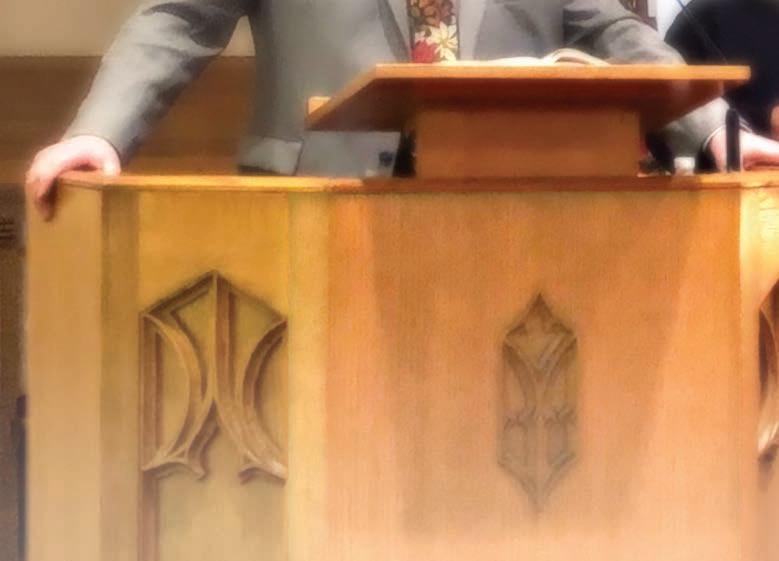 Rev. Zachary Wyse
Rev. Zachary Wyse
The Outlook | 10
parishioners of much joy and comfort” even though they are “comforting and encouraging truths” (175). As he addresses these misconceptions, he not only provides excellent, thought-provoking answers but also models what it means to get underneath the question to more foundational problems. For example, some misconceptions can arise from rationalism or a desire to know more than God has revealed in his Word. By carefully identifying the underlying disease, the symptom is more easily remedied. This reviewer especially appreciated his response to those who claim that the Reformed doctrine of election promotes sin and licentiousness. While conforming to canons 1:14–15, Dr. Palmer also offers fresh insights and avenues of apologetic response: “The Bible repeatedly associates election with holiness,” which he demonstrates from Scripture (178).
Any Christian, but especially a pastor or other office bearer, will find this chapter helpful in integrating the Canons of Dort with the real life of a congregation. The pastor who is preparing to preach through the Canons of Dort within the catechism service can go here in order to find beneficial material (e.g., why some may reject our doctrine or misunderstand it). Likewise, the preacher will find an outstanding model for applying the doctrine to distinct kinds of hearers in a way that promotes Christian comfort and godliness. In addition, the Christian layperson who seeks to provide biblical counsel to a loved one (rather than the sentimentalism that pervades our age) will see just how practical and heartwarming our doctrinal statements can be, even the Canons of Dort. Ultimately, Palmer directs us to God’s doxological goal in giving us his Word: “inducing us to glorify God with our being” as we “contemplate the unsearchable riches of his grace” (182). His chapter certainly takes the reader a step in that direction.
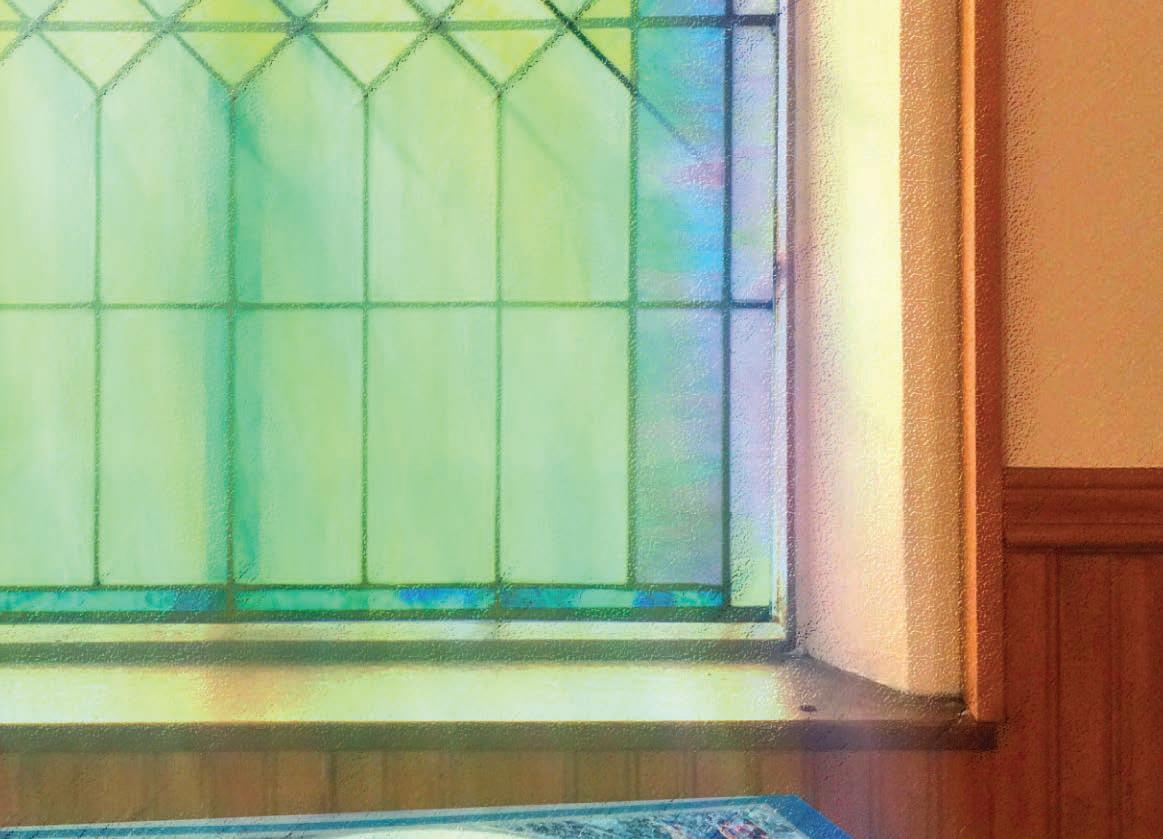
The Significance of Dort Today Revisited
Dr. Daniel Ragusa
 Chapter 10, “The Significance of Dort Today,” by Cornelius Van Til
Chapter 10, “The Significance of Dort Today,” by Cornelius Van Til
The allurement of autonomy is as young and as ancient as spring, bursting anew in the fields of every age with its deadly fruit—ours not excluded. “Instigated by Satan, Adam introduced the notion of human autonomy,” writes Cornelius Van Til (1895–1987) in his essay “The Significance of Dort Today” (219). The word autonomy means to be a law unto oneself. It is man’s attempt to throw off his creatureliness and to assert his independence from God and his Word. We see this happening all around us in the world today, especially in a month celebrating the deadly sin of pride, but how much worse when it happens in the church?
The Synod of Dort, says Van Til, “can be understood and evaluated only against the centuries-old struggle of the true church for God’s truth” (215). Dort was a gathering of Reformed professors, pastors, and elders committed to the glory of God who struggled against the assertion of human autonomy in their day under the guise of free will and made a stand for generations to come to live by every word that proceeds from the mouth of their sovereign Lord. For
this reason, Dort remains as relevant today as it was in 1618–19 when it convened.
In what follows I would like to develop and explain what Van Til writes in his essay with the hope that you will take it up to read for yourself.
That “centuries-old struggle,” as Van Til put it, teaches us that human autonomy infiltrates the church wherever the totalizing effects of Adam’s fall into sin are lessened. We see this in the teaching of Thomas Aquinas and the Roman Catholic Church. They cleared space for human autonomy by making the image of God into something external to man’s nature. It was like a piece of clothing that could be discarded without any essential change to man. So, when Adam fell, he lost the image of God, but who he was, his nature itself, was left unharmed, still capable of doing good and reasoning rightly. He may be fallen, but he is still free. God’s grace may make him more free, but it does not set him free. Van Til writes, “In the Roman scheme of things the natural man is not told that he is a slave to sin because of his fall
Sept/Oct 2023 | 11
in Adam, and that only the grace of God in Christ applied to him by the regeneration of the Holy Spirit can set him free” (216).
The Reformers recovered the biblical doctrine of the image of God and original sin. They believed that the image of God was not something external to man but internal. Van Til’s beloved professor Geerhardus Vos summarizes it well:
[The image of God] means above all that [man] is disposed for communion with God, that all the capacities of his soul can act in a way that corresponds to their destiny only if they rest in God. This is the nature of man. That is to say, there is no sphere of life that lies outside his relationship to God and in which religion would not be the ruling principle. According to the Roman Catholic conception, there is a natural man who functions in the world, and that natural man adopts a religion that takes place beyond his nature. According to our conception, our entire nature should not be free from God at any point; the nature of man must be worship from beginning to end.1
In the core of his being, man was created wholly disposed toward God as his highest good. So by falling away from God he was “changed in the deepest depth of his being.”2 He was not merely weakened by sin, but he died and was made incapable of any spiritual good. If he were to live again, God must save him by his sovereign grace alone.
Following the Reformation and in the days leading up to Dort, human autonomy again crept into the church in the name of free will through the Remonstrants, who were disciples of Jacobus Arminius. In their mind, free will was an unquestionable given of human experience. They also knew what the Belgic Confession
taught in article 13, namely, “We believe that this good God, after he created all things, did not abandon them to chance or fortune but leads and governs them according to his holy will, in such a way that nothing happens in this world without his orderly arrangement.”3
But it was “chance or fortune” that the Remonstrants needed, if man was to be free. They could no longer view reality as led and governed by God. The world had to be abandoned to chance—if not everywhere, at least with respect to man and his will. This is what Van Til means when he says, “Involved in the assumption of human autonomy is a comprehensive theory with respect to the nature of all reality, including God and man” (219). All for the sake of free will, the Remonstrants reconfigured the whole of reality contrary to the basic teaching of Scripture.
Their love of human autonomy led them into a terrible contradiction. If there is no orderly arrangement to the world, if it has been abandoned by God to chance, whether totally or in part, then the world is irrational. But how can anyone make a rational decision in an irrational world? He cannot “any more than a drop of water in a bottomless and shoreless ocean can distinguish itself from any other drop in the same ocean” (220). This is what Van Til calls the “rationalist-irrationalist synthesis” (219). In trying to save man’s free will, the Remonstrants lost it in a sea of chance.
The allurement of autonomy remains with us today, maybe stronger than ever, especially in the insistence on free will as an unquestionable given of human experience. Its roots are reaching deeper and deeper in the field of ethics as biblical sexuality and identity are questioned in various quarters of the church. But let us not for the sake of human autonomy deprive ourselves of the unspeakable comfort of confessing that “that
nothing can happen to us by chance but only by the arrangement of our gracious heavenly Father.”4 Dort retains significance for us today as a stronghold of that biblical comfort from which we can freely and joyfully “proclaim the gospel of the sovereign grace of God” to the world (231).
1 Geerhardus Vos, Reformed Dogmatics (Bellingham, WA: Lexham Press, 2012), 2:13.
2 Vos, Reformed Dogmatics, 2:14.
3 Belgic Confession, Article 13.
4 Belgic Confession, Article 13.
Mr. Michael R. Kearney is a board member of Reformed Fellowship. He is pursuing a Ph.D. in Rhetoric at Duquesne University in Pittsburgh.
Dr. R. Andrew Compton is a board member of Reformed Fellowship. He is Associate Professor of Old Testament Studies at Mid-America Reformed Seminary in Dyer, IN. He is a minister in the URCNA.
Dr. Daniel Ragusa is a board member of Reformed Fellowship. He received his M.Div. from Mid-America Reformed Seminary (2016) and Ph.D. from Westminster Theological Seminary (2023). He served Pompton Plains Reformed Bible Church as Stated Supply from 2019–20. He accepted a call to Messiah’s Reformed Fellowship in NYC in 2021. He lives in Brooklyn with his wife, Susanna, and son, Daniel Jr.
Rev. Zachary Wyse received his M.Div. from Westminster Seminary California in 2013. He has served Westside Reformed Church in Cincinnati, Ohio, since planting it in 2013. He is married to KC, and they have four children: Dominic, Cora, Beatrice, and Andrew Reformed Fellowship will host a livestreamed panel discussion on Crisis in the Reformed Churches on Thursday, 10/26 at 7:30 pm EDT/6:30 pm CDT.
Follow RF on Facebook or email office@reformedfellowship.net for the link.
The Outlook | 12



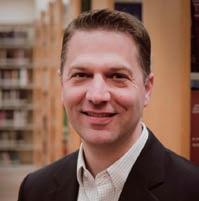
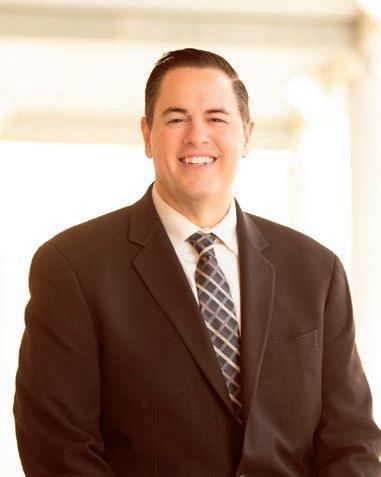
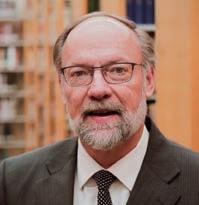

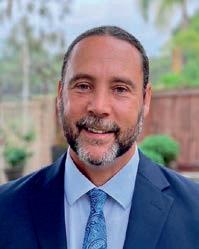

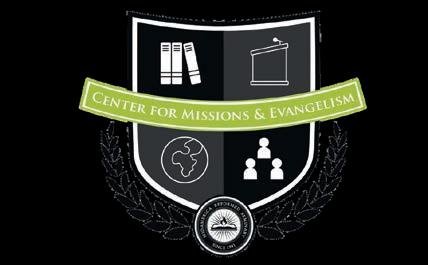







October 6-7, 2023 Bethel Church | Lansing, Illinois Register at www.midamerica.edu/cme/conference 2023 Center for Missions and Evangelism Conference B e y o n d t h e W a l l s Faithful Mission in an Age of Adversity Sept/Oct 2023 | 13
(ISSN 8750-5754) (USPS 633-980)
“Exhorting you to contend earnestly for the faith which was once for all delivered to the saints.”
—Jude 3
Journal of Reformed Fellowship, Inc.
Send all copy to:
Editor, Dan Van Dyke
3718 Earle S.W. Grandville, Michigan 49418
Email: djvan1951@gmail.com
Website: www.reformedfellowship.net
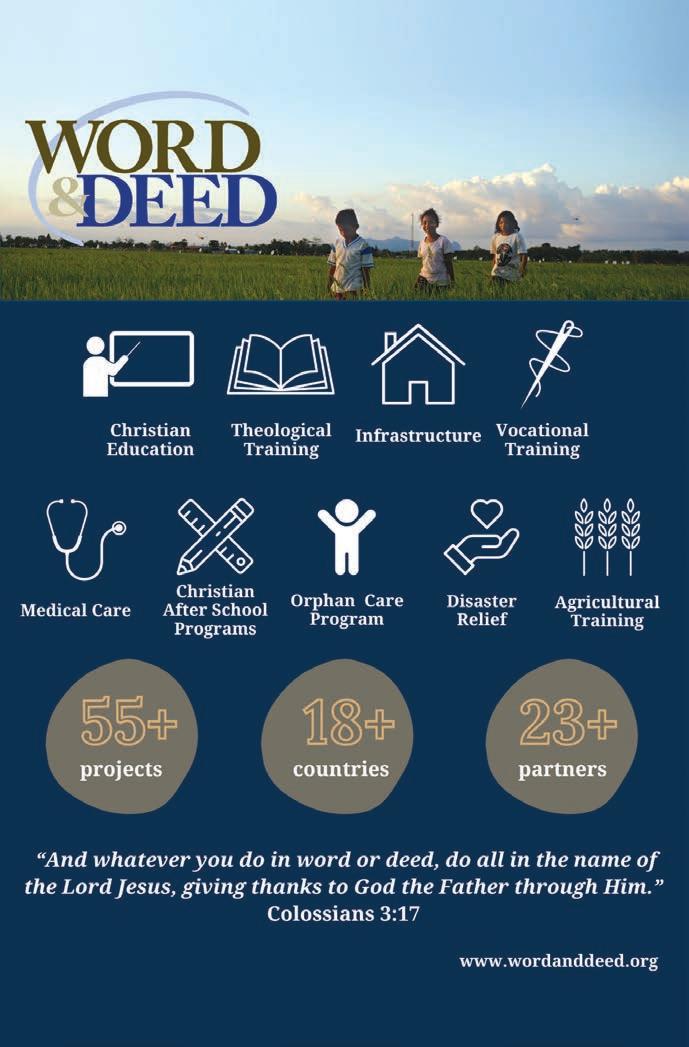
Board of Trustees
Al Rumph, President; Rev. Casey Freswick, Vice President; Rev. Doug Barnes, Secretary; Rev. Andrew Compton, Vice-all; Glenn Hop, Michael Kearney, Tom Kooienga, Dr. Daniel Ragusa, Rev. Mark Vander Hart, David Vander Meer, and John Velthouse, Directors
Editor: Dan Van Dyke
Contributing Editor: Dr. Cornelis P. Venema
General Manager: Hope Staal
Manager's Assistant: Emily Postma
Art, Design & Production: Jeff Steenholdt
This periodical is owned and published by Reformed Fellowship, Inc., a religious and strictly non-profit organization composed of a group of Christian believers who hold to the biblical Reformed faith. Its purpose is to advocate and propagate this faith, to nurture those who seek to live in obedience to it, to give sharpened expression to it, to stimulate the doctrinal sensitivities of those who profess it, to promote the spiritual welfare and purity of the Reformed churches and to encourage Christian action.
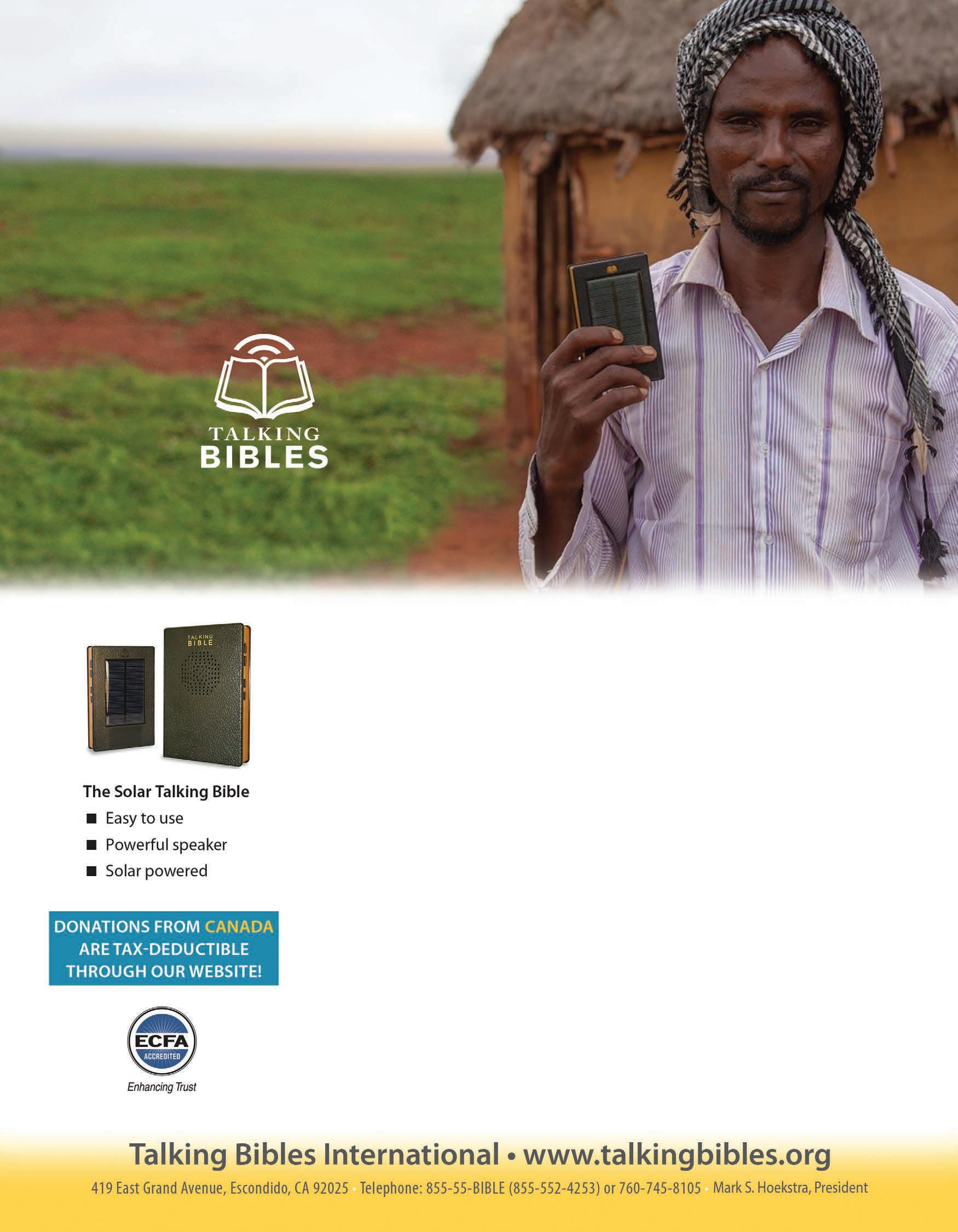
The publishers of this journal express their adherence to the Calvinistic creeds as formulated in the Belgic Confession, the Heidelberg Catechism, the Canons of Dort, and the Westminster Confession and Catechisms.
Reformed Fellowship holds the copyright to all material published in this magazine. All contributions represent the personal views of the writers and do not necessarily reflect the opinions of the members of Reformed Fellowship, Inc.
Subscription Policy
The Outlook (USPS 633-980) is published six times per year (bi-monthly) by Reformed Fellowship, Inc. Annual subscriptions are $30.00 per year in the United States; outside the US, $36 per year (foreign subscribers please remit payment in US Funds; Canada add GST). Digital download subscriptions are $12 annually, and are included FREE with a print subscription. Unless a definite request for discontinuance is received, it is assumed that the subscriber wishes the subscription to continue without the formality of a renewal order and he will be billed for renewal. Anyone desiring a change of address should notify the business office as early as possible in order to avoid the inconvenience of delayed delivery. Zip code should be included. Periodical postage paid at Grandville, MI and at additional mailing offices.
POSTMASTER:
Send address changes to The Outlook, 1988 140th Avenue, Dorr MI 49323
Advertising Policy
1. The Outlook cannot accept announcements or advertising copy inconsistent with the stated purpose of RFI. All advertisements and announcements must be approved by the RFI board prior to publication. We reserve the right to reject, edit, or request resubmission of announcement text or advertising copy. Books, pamphlets, or CDs to be advertised are to be screened as to author and content prior to publication of the advertisement, and such material should not conflict with the stated purpose
of RFI. We reserve the right to limit the size of all announcements and advertisements, and to limit the number of issues in which they appear.
2. All advertisements or announcements are to be submitted via email to office@reformedfellowship.net or to the business office at 1988 140th Avenue, Dorr MI 49323, and must be received at least two months before the publication date.
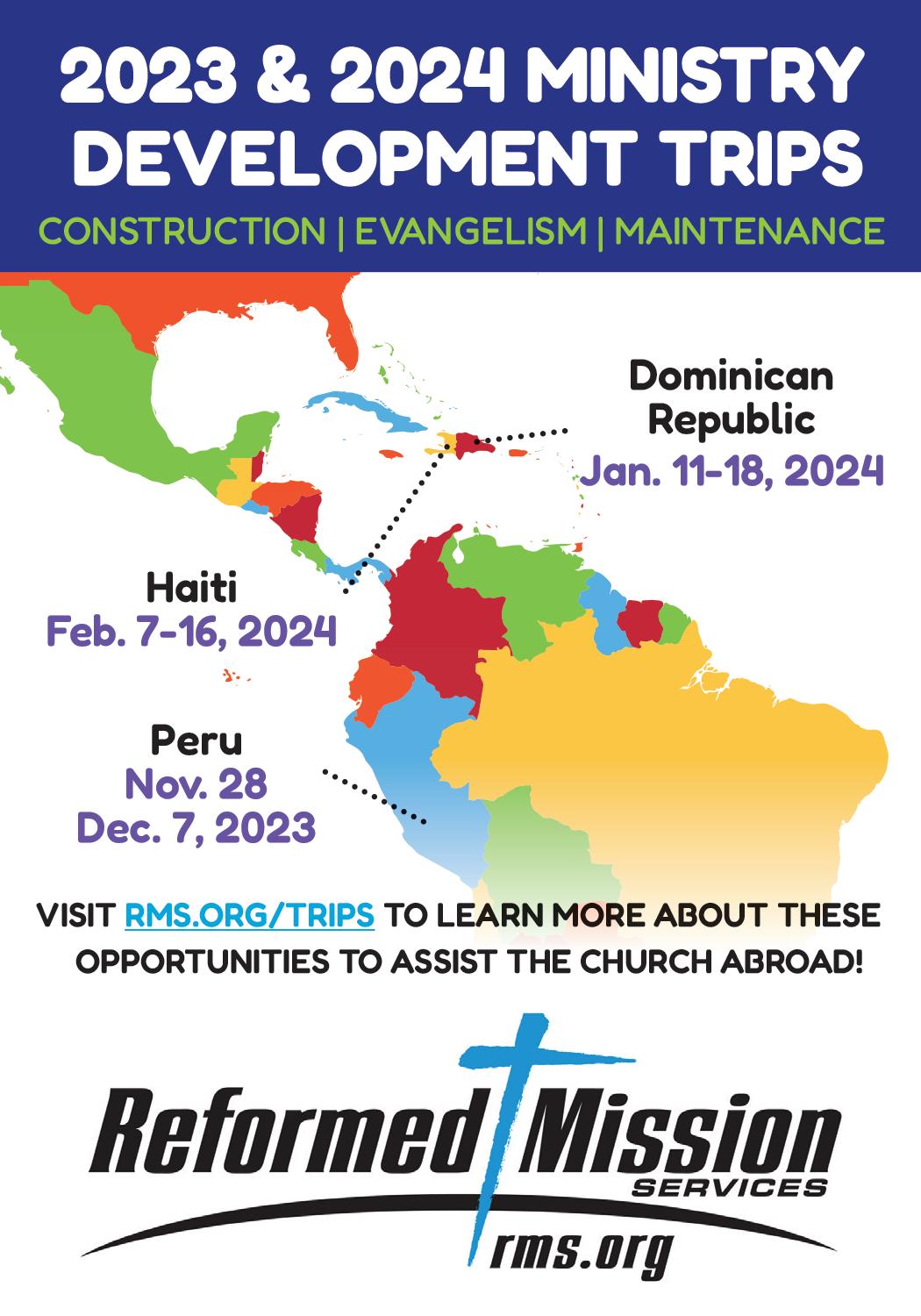
3. Fees for B&W/grayscale ads: $190 for full-page, $115 for half-page, $65 for quarter-page.
4. Fees for full-color ads: $235 for full-page, $140 for half-page, $80 for quarter-page.
5. Fees for preparing artwork for ads (in addition to advertising costs above) are $140 for full-page, $115 for half-page, $90 for quarter-page. These fees are waived if advertising art is print-ready. Please submit manuscript in an email or as an MS-Word.doc attachment. If you have pictures or images, please include as JPG files.
6. Preferred final file format for print-ready ads: High Quality Print PDF.
7. Ad sizes specifications:
8.75 x 11.25, trim 8.5 x 11"
Full page non-bleed: 7.25 x 9.75"
Half page horizontal bleed: 8.625 x 5.25"
Half page horizontal non-bleed: 7.25 x 4.5"
Quarter page (non-bleed) 3.5 x 4.5"
8. This Advertising Policy supersedes all prior policies, resolutions, or other statements.
Editorial Office
Dan Van Dyke
3718 Earle S.W. Grandville, Michigan 49418
Email: djvan1951@gmail.com
Circulation Office
1988 140th Avenue, Dorr MI 49323
(616) 532-8510
Business Mailing Address

1988 140th Avenue, Dorr MI 49323
Email: office@reformedfellowship.net
The Outlook | 14


Reformed Fellowship, Inc.
1988 140th Avenue
Dorr, MI 49323
(616) 532-8510
CRISIS IN THE REFORMED CHURCHE
S Essays in Commemoration of the Great Synod of Dort 1618–1619
Written for the 350th anniversary of the Synod of Dort 1618-1619.
At that Synod, Reformation insights were consolidated to achieve a more effective and unified ministry by Christ’s church in an age of change and challenge.
SPECIAL $15.00
Hardcover | 336 pages
$20.00
Special $15.00 sale price is good through October 31, 2023

To order please... visit: www.reformedfellowship.net email: office@reformedfellowship.net or call 616.532.8510
This book brings a greater understanding of the historical necessity of the Synod of Dort, the key figures involved in the synod, and its application for Reformed Christians facing their own crises in the church militant today.
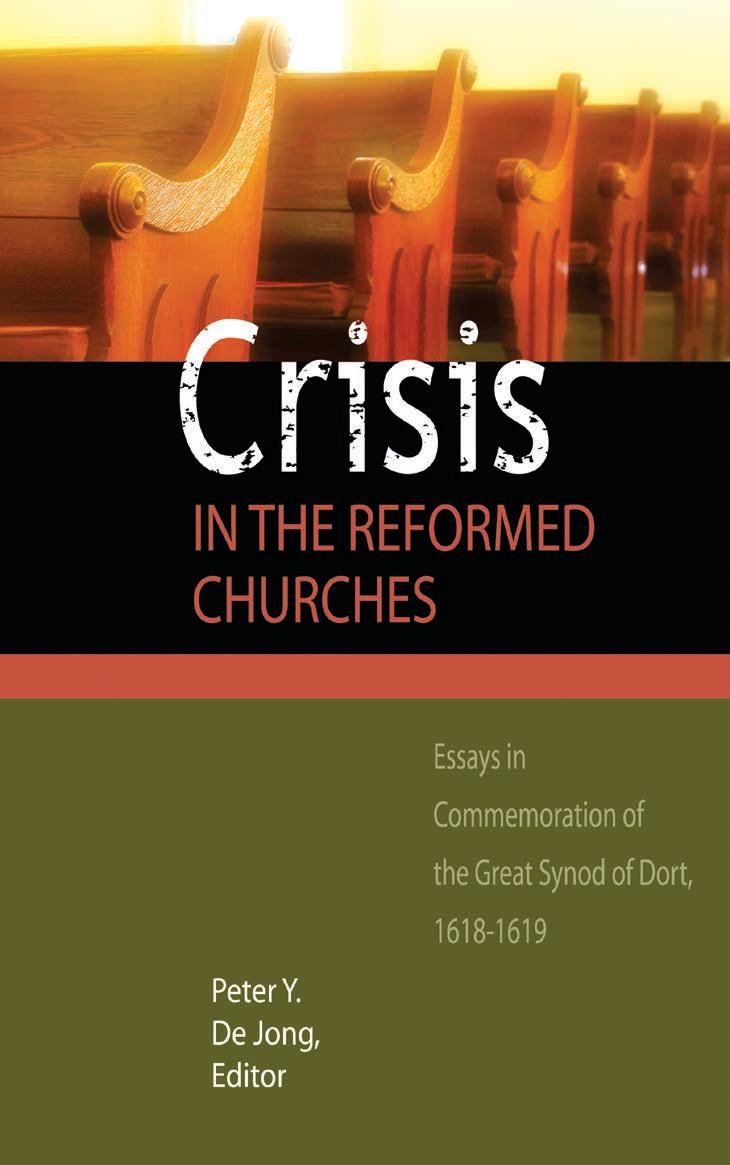
This hardcover book will be a valuable resource for those interested in the development of the doctrines of grace.
A perfect book for this fall’s Bible Study groups! Call or email to receive a quantity discount quote for large orders.





















 Dr. R. Andrew Compton
Dr. R. Andrew Compton


 Rev. Zachary Wyse
Rev. Zachary Wyse

 Chapter 10, “The Significance of Dort Today,” by Cornelius Van Til
Chapter 10, “The Significance of Dort Today,” by Cornelius Van Til






















